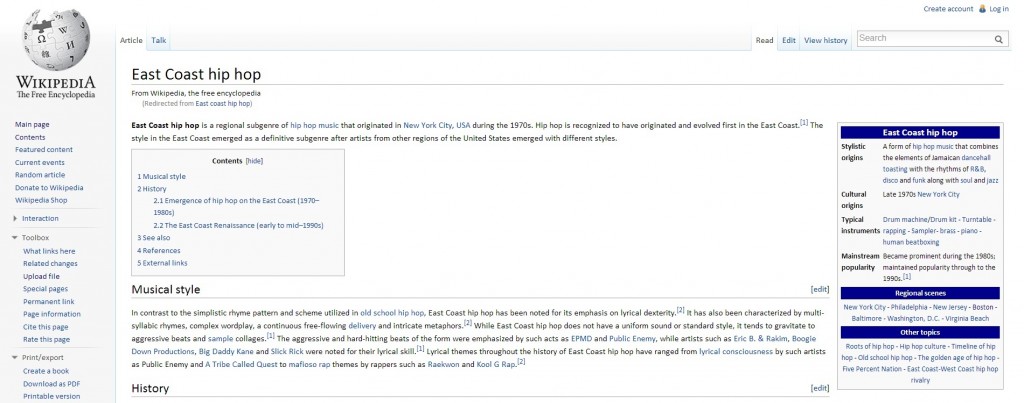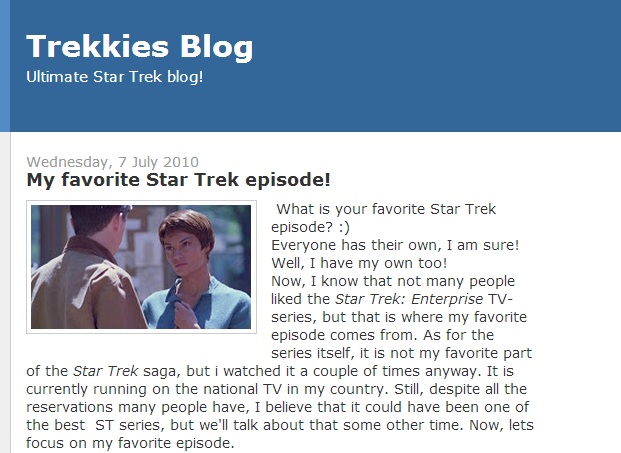
Everything You Wanted To Know About Wikipedia, Part 1
EVERYTHING YOU WANTED TO KNOW ABOUT WIKIPEDIA, PART 1
Everything You Always Wanted To Know About Wikipedia (…and probably some stuff you never thought to ask), Part 1
Wikipedia has become a standard, go-to resource for all kinds of facts: Want to know everything there is to know about the giant squid? Need a list of every Nobel Prize winner, organized by country? Interested in the history of Microsoft? Ever wondered about the difference between East Coast and West Coast hip-hop?
Wikipedia is a great example of the awesome things that can happen when people get together and pool their knowledge and expertise. Anyone with a laptop and an Internet connection can contribute to Wikipedia.
But this doesn’t mean Wikipedia is a free-for-all. Yes, anyone can contribute a new article or edit an existing one — but if you want your contribution to “stick,” you’ve got to follow a ton of rules regarding content, sources, neutrality, and notability.
So, what makes a “good” Wikipedia article? Does your product, service, or company belong on Wikipedia? What happens if your article gets flagged? And what does “flagged” mean, anyway?
Wiki can be complicated (and even a little intimidating) to the uninitiated. That’s why we’ve decided to do a series of blog posts exploring the ins and outs — and rules — of Wikipedia.
This week, we’re kicking off the series with a few of the basics.
”
First things First: What is Wikipedia?
Wikipedia is an online encyclopedia – but what does that mean? Here’s a good definition, from Wikipedia itself:
Basically, everything you need to know about Wikipedia is in the above sentence:
- Wikipedia is “neutral.” In other words, it doesn’t represent one single viewpoint on any subject.
- Wikipedia contains “verifiable, established facts.” As in, facts that have been published by an uninterested and reliable third party. Facts that you can verify by checking a couple of sources, such as (reputable) newspaper or magazine articles.
We’ll take a more in-depth look at both neutrality and sources in future posts. But right now, let’s just focus on the big picture.
So, now that we know what Wikipedia is, let’s take a second to discuss what Wikipedia isn’t. And there are a whole lot of things that Wikipedia isn’t. In fact there’s a whole page on Wikipedia dedicated to this topic, and it’s pretty long.
Essentially, though, it boils down to this:
- Wikipedia is not a blog/fansite/personal website. So you can’t write in first-person, and you can’t write whatever you want. It’s not a place for ranting about politics or enthusing about your favorite movie or TV show. That’s not to say that your favorite TV show doesn’t deserve a Wikipedia page. It probably does. But it still has to conform to Wikipedia’s standards.
In other words, like this:
Not this:
- Wikipedia is not a place to publish your original research/inventions/discoveries. Let’s say you just discovered a new planet or invented a super-cool new iPhone app. This is fantastic – but it’s not Wiki-appropriate. Because Wikipedia is a place for “established” facts, it’s not a place for your original work or research . . . yet. (We say “yet” because if an established, third-party publication like Newsweek or the Wall Street Journal writes an article about you and your new planet/iPhone app, you might actually be Wiki-eligible. But more on that later.)
- Wikipedia is not a place for advertisements/self-promotion. Again, we’ll get much more in-depth with this later, but when writing about a company, product, or service you have to be extra-careful not to sound biased. Wiki pages that sound like they were written by a company’s PR department quickly get flagged for neutrality/conflict-of-interest issues, which looks like this:
That doesn’t mean that your product, service, or company doesn’t belong on Wikipedia. It just means that, if you want your Wiki page to “stick,” you have to follow the rules.
Wikipedia, The Writers For Hire, and You (or Your Company/Product/Service)
We’ve created dozens of Wikipedia articles for clients on a wide range of topics. And we’ve got an excellent track record.
And that’s because we turn down more Wiki projects than we accept. It’s not that we don’t want your business. We do. But we don’t want to take your money if we know that your page won’t stick. Before we accept any Wikipedia project, we make sure your topic is eligible for a Wiki page.
To be eligible, a topic must meet two major criteria: It needs to be notable, and it needs to have received significant coverage by neutral, reputable third-party sources.
We’ll get more into both of these as we continue our Wikipedia series. Stay tuned!
Coming up next: Notability.
Related Content
- 0 Comment
Subscribe to Newsletter
- How Can SharePoint Be Used To Organize and Disseminate SOPs?
- Planning the Perfect Genealogy Research Trip: A Step-by-Step Guide
- From Silly to Awesome: How Words Change Meaning Over Time
- The Psychology of Font Choice: How Typography Impacts Content Engagement
- How to Distribute SOPs for Maximum Usability





